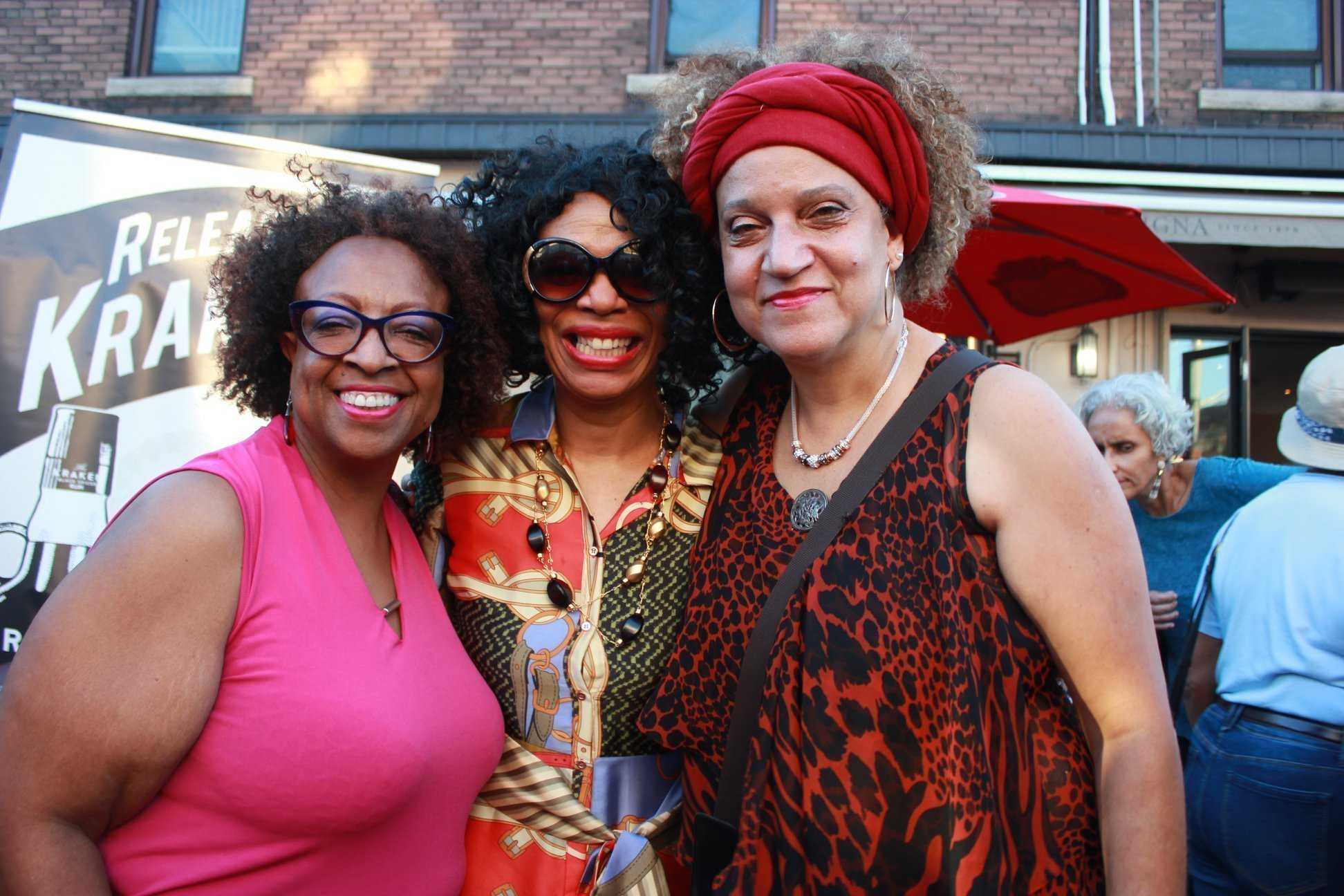on
BY: ALYSSA MAHADEO
It’s that time of year again!
Now entering its 13th year the CaribbeanTales Film Festival (CTFF) celebrates the talents of established and emerging filmmakers of Caribbean heritage who practice their art throughout the Caribbean Diaspora and around the world. Each year CTFF presents a multi-ethnic mix of exciting and dynamic films that showcase diverse and shared stories and cultures to fulfill their mission, connecting Caribbean people through film.
CTFF is produced by Caribbean Tales Inc., a registered Canadian charity. The company’s mandate is to foster and encourage intercultural understanding and racial equality, through the creation, marketing and distribution of film, programs, events, and projects that reflect the diversity and creativity of Caribbean heritage and culture.
The 13th year of the CaribbeanTales Film Festival opens on Wednesday, September 5th, 2018 with a special preview screening of Hero: Inspired by the Extraordinary Life & Times of Mr. Ulric Cross at the Royal Cinema, 608 College Street at 8:00 pm with a red carpet of stars and influencers rolling out at 7:00 pm.
Hero is directed and produced by Frances-Anne Solomon – founder and CEO of CaribbeanTales Film Festival. Women directors, producers, and HerStories are featured prominently in this year’s line-up of the Opening Night Gala and the seven Special Presentation Nights:
- Sept. 5th– Opening Night: Trailblazers
- Sept. 12th – Shine Ya Light
- Sept. 13th – Building Bridges (Women of Colour Creators)
- Sept. 14th – Draw Fire: Bajan Invasion
- Sept. 15th – Rise Up: Queer and Here
- Sept. 15th– Shades of Justice
- Sept. 19th – Redemption Tales
- Sept. 20th – Torchsong: Haiti.
“Our festival theme this year is ‘Light It Up.’ It’s a call to action. A call to arms. A call to change. A call that’s been ringing out for a long time,” says Diana Webley, Associate Festival Director. “We are asking our filmmakers to shine their lights on all the changes in the world, to showcase their vision of change and to spread their message…to lead the way.”
CaribbeanTales (CTMG) is a group of media companies that produce, market, and exhibit Caribbean-themed films for regional and international distribution, including CaribbeanTales Worldwide Distribution, the first and largest full-service film distribution company in the English-speaking Caribbean’ and CaribbeanTales Inc, a registered Charity in Canada. Activities include: The CaribbeanTales International Film Festival now in its 14th year that celebrates the talents of established and emerging filmmakers of Caribbean heritage who practice their art across the Caribbean Diaspora worldwide; The renowned CaribbeanTales Incubator (CTII) a year-round development and production hub for Caribbean and Caribbean Diaspora Producers that aims to create strong, compelling and sustainable content for the global market; Caribbeantales-TV a VOD streaming service for Caribbean films; and CaribbeanTalesFlix, our production arm.
Opening night film Hero introduces the world to breakout star Trinidadian actor/artist/musician Nickolai Salcedo (Moving Parts, Salty Dog) and includes an international supporting cast of Jamaican-born Peter Williams (Stargate SG-1, A Winter Tale), St. Lucian/British Joseph Marcell (Fresh Prince of Bel-Air) and Ghanaian Nollywood superstar John Dumelo (A Northern Affair).
Hero – Inspired by the Extraordinary Life & Times Of Mr. Ulric Cross, is the story of a young man from Trinidad whose life is woven into the tapestry of history. His long life (1917 – 2013) spanned key events of the 20th Century and included the independence struggles of Africa and the Caribbean. A Trinidadian trailblazer who made his mark in history flying fighter planes in World War II to become possibly the most decorated West Indian Airman.
During a time when racism placed roadblocks in the way of people of African descent, Cross broke down barriers to become a BBC broadcaster, a lawyer, a judge and a diplomat. He played a central role in the independence struggles of both Africa and the Caribbean.
“The story interweaves “reality” media (archive, interviews) with “artificial” media (dramatic re-creation). These artistic tools are vital to reclaim and retell Caribbean stories. Since “real” footage does not exist, we must re-imagine the past. These appropriations of the form are essential where conventional documentation is lacking. We must seek, through the new technology, to reclaim our authentic histories by any means necessary,” said Director/Producer Frances-Anne Solomon.
“Ultimately, the story is about us, about who we are as Caribbean people and as citizens of the world.” The international cast includes top screen stars from the Caribbean, Great Britain, Ghana and Canada including Trinidad’s Nickolai Salcedo in the lead role of Ulric Cross, Peter Williams (Stargate SG1), Joseph Marcell (Fresh Prince of Belair) and Ghana’s John Dumelo. The 100-minute feature film was filmed over three years on location in Ghana, Great Britain, and Canada, as well as in Trinidad & Tobago.
Other notable films to watch for:
- Dancehall’s Asian Ambassadors – director: Kaneal Gayle/September 19th
-a documentary that follows four Japanese women who move to Jamaica after falling in love with Dancehall music and build their lives and careers on the island and in its music culture.
- Saturday Night Church – director: Damon Cardasis/September 15th – teenager Ulysses struggles with his gender identity and finds an escape by creating a world of fantasy filled with dance and music that leads him to a vibrant transgender community
- It Stays With You: Use of Force by UN Peacekeepers in Haiti – directors: Cahal McLaughlin & Siobhan Wills/September 20th – this film returns to Haiti’s Cité Soleil, a severely economically depressed neighborhood in Port-au-Prince to examine the impact of the 2005-2007 crackdown on criminals that left scores of civilians dead or injured.
Tickets can be purchased online at caribbeantales.org along with a full schedule of showtimes.
Stay in the loop with exclusive news, stories, and insights—delivered straight to your inbox. No fluff, just real content that matters. Sign up today!













